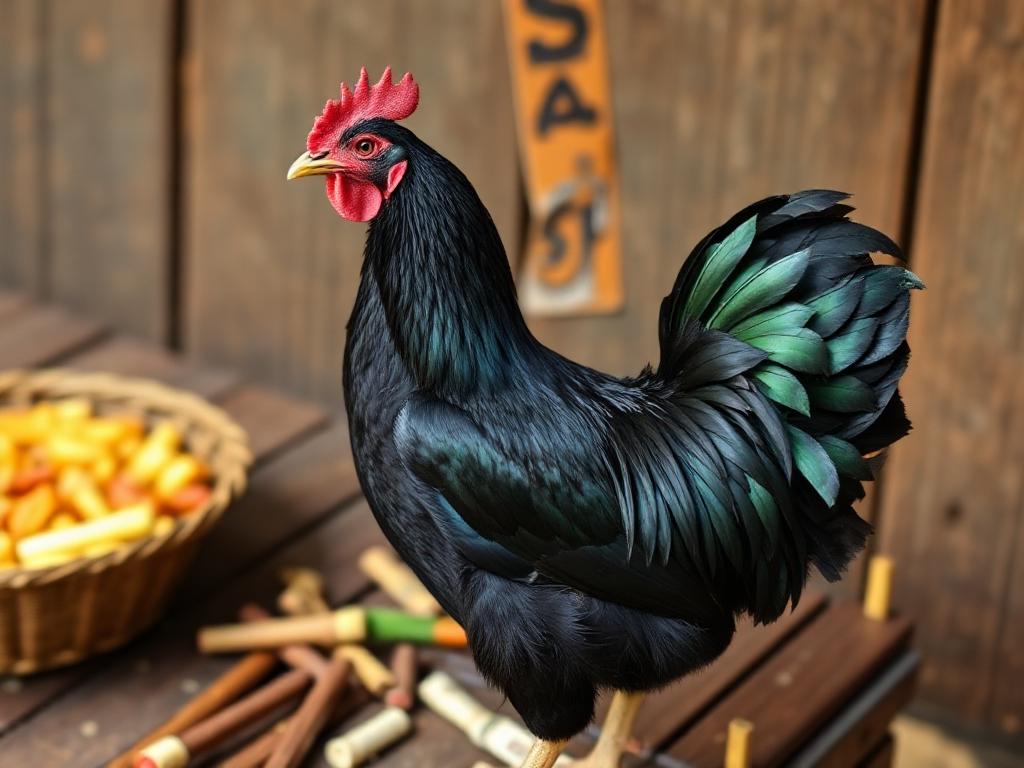Recently, the phenomenon of exotic poultry has given rise to an interest in a very specialized subject: black chicken eggs. From social media chatter to gourmet restaurant menus, the concept of jet-black chickens laying eggs has burgeoned across the globe. But, are black chicken eggs real, or are they just another story plucked from the farmyard? This article explores the science behind it, the breeds, the color truth, and the commercial importance of these mysterious eggs.
What Are Black Chicken Eggs?
First and foremost, the most common misconception needs to be clarified: black chickens do not lay black eggs. Of course, with all the hoopla and viral social posts, which breed, if any, can truly lay black-shelled eggs? What are commonly mistaken for black eggs are extremely dark brown, olive, or even painted ones.
“Black chicken eggs” is often attributed to the eggs of the Ayam Cemani breed, which are known for their completely black plumage, skin, and even internal organs. However, Black Chicken Eggs the eggs are cream or very light pink in color — not black.
The Breeds Behind the Myth
Ayam Cemani: The Gothic Beauty
The Ayam Cemani is arguably the most famous black chicken of the world, being from Indonesia. These birds are stunning. Everything is black, counting feathers, skin, beak, and even internal organs, due to a genetic disorder called fibromelanosis that causes excessive pigmentation.
Ayam Cemani ladies, in spite of their serious colouring, lay light cream eggs, around 80-100 per year. Egg collectors often find themselves surprised by the contrast, Black Chicken Eggs expecting something equally exotic from their nesting boxes.
Other Dark-Feathered Breeds
Other breeds such as Silkie, Kadakanath (from India), and Svart Hona (a Swedish black chicken) also fall under the category of “black chicken.” While they differ by how dark their feathers or skin are, none produce truly black eggs.

Understanding Egg Color Genetics
Egg color is a function of genetics. The two pigments mainly involved are protoporphyrin IX (the brown pigment) and biliverdin (the blue pigment). By mixing these pigments, you can get white, brown, blue, green, or speckled eggs — but never black. There is no chicken gene that can produce a true black pigment in an eggshell.
Black Chicken Eggs Nutritional Value
Experts often ask if eggs of black chicken breeds have any nutritional advantage. Such nutritional values generally depend upon the diet and health of the chickens rather than the feather color of the birds.
As a consequence, breeds such as Kadaknath usually live and thrive under rural housing systems where they feed on organic materials, thus increasing the nutritional worth of the eggs. Further, Black Chicken Eggs nutritional values of these eggs may include:
A possible high protein;
Wealth of omega-3 fatty acids;
And sometimes lower cholesterol.
But those benefits apply to all black chickens and other well-known layer breeds raised organically, such as Rhode Island Reds or Leghorns.
Cultural Importance and Market Significance:
In various traditions, these black birds have cultural symbolism and spiritual import. For instance, in Indonesia and certain parts of Africa, Ayam Cemani chickens are said to possess mystical powers and are often used in traditional rituals.
In India, Kadaknath chicken is considered an important bird due to its medicinal properties for the practice of Ayurveda, where its meat and eggs are considered to enhance vitality and stamina. Black-chicken eggs are in demand due to both their rarity and cultural significance among:
Gourmet chefs searching for an exotic ingredient;
Rare poultry collectors;
And health-oriented consumers wanting organic or natural products.
Rates of Ayam Cemani or Kadaknath eggs may hover within $10-$50 per dozen, depending on the location and authenticity.

Farming and Breeding Considerations
Black chicken breeds are not for everyone. They are costlier, and at times, breeding purebreds can become difficult. As such, here are a few key points:
Ayam Cemani is relatively rare and can breed difficultly in colder climates.
Kadaknath requires careful environmental management and can be susceptible to disease if it is not raised properly.
Breeders also require understanding of biosecurity issues as high demand would lead to unethical practices such as selling dyed eggs or crossbreeds.
This breed purity and health care would need time, finances, and proper breeding knowledge.
Where to get Black Chicken Eggs
Because of their exotic nature, there’s normally no sign of black-chicken eggs in your local grocery store. Instead, an individual can find them at:
Certified poultry farms
Sellers online that sell specialties
Farmer’s markets or gourmet food stores
However, make sure that they are authentic. Most sellers would sell dark brown or olive-toned eggs as ‘black’ to capitalize on the trend. Always check for breed, origin from the farm, and request pictures of the chickens themselves when buying online.
Also, some countries do not allow the importation of poultry and eggs; therefore, buyers from such countries must check with local regulations.
